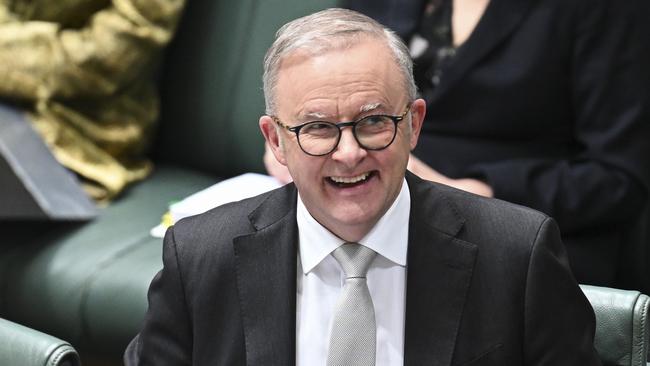
An embarrassing admission to the erroneous claim that drones were keeping tabs on released detainees may be the least of the indictments against him so far but it is significant for other reasons.
Giles’s instinct is to evade responsibility wherever possible.
This now goes to an issue much broader than alleged mismanagement of his portfolio, a lack of command of the brief or the political damage he continues to inflict on his own government.
For the second time in a week, Giles has thrown his own department under a bus, publicly blaming public servants for his own failings over Ministerial Direction 99.
If the relationship between the minister and his department was not already fractured, it is surely now broken.
Giles’s conduct raises a fundamental question about the maintenance of good governance.
How can a minister continue to administer a department in such a fashion, where trust has been clearly shattered?
It goes beyond the relationship between a minister and a departmental secretary and exposes a significant split, at a cultural and administrative level, between the bureaucracy and the executive in a portfolio that requires vigilance in application of policy and law.
We now know that the department had raised concerns about the broader implications of ministerial direction 99. This was a politically charged decision that came from the top, from Anthony Albanese himself.
The department did what was required of it by diligently and efficiently carrying out the request of the government of the day while giving it frank advice about the consequences.
These concerns were clearly ignored.
Moreover, department officials were placed under considerable pressure from Giles’s office, and presumably the Prime Minister, to deliver a pledge that experienced officials knew was potentially flawed.
It is now further known than officials from the New Zealand high commission had virtually set up camp in the immigration unit of Home Affairs, presumably to ensure the Ardern government got what it wanted.
This is all but confirmed in the department’s submissions to government in which it directly raised the sensitivities of the New Zealand government.
For Albanese, there was no obvious quid pro in delivering for Ardern. However, it appears that there was a sense of longer-term political opportunity.
Not long after Direction 99 came into effect, Labor announced its citizenship fast-tracking program for Kiwis in Australia. This was the second element of the Ardern compact agreed to in the bilateral meeting in Sydney in July 2022, which was to be finalised by Anzac Day the following year.
This was the timetable set for the department. Hence the pressure to deliver.
Not only was Albanese offering to resolve the issue of deporting convicted criminals with long-term ties to Australia, he was offering a new and faster “pathway to citizenship” for New Zealanders.
Not that anyone is suggesting Albanese was considering citizenship for criminals. Citizenship requires a character test that no one on a cancelled visa – overturned or not – would pass.
Nevertheless, there was a potential political dividend for Albanese in turning New Zealand nationals into citizens and in turn converting them into voters.
There are potentially hundreds of thousands that could qualify and Labor would assume that most would swing its way, and in seats where it matters, particularly in Queensland.
In any normal year, about 2000 New Zealand nationals apply for citizenship in Australia.
After the announcement in April 2023 of the new pathways for New Zealand nationals, that number shot up to 43,000.
There was clearly some method to the madness.
But Albanese must surely now be wondering whether the political cost of Direction 99 was worth it.




The opposition case for Andrew Giles’s dismissal as immigration minister grows by the day.